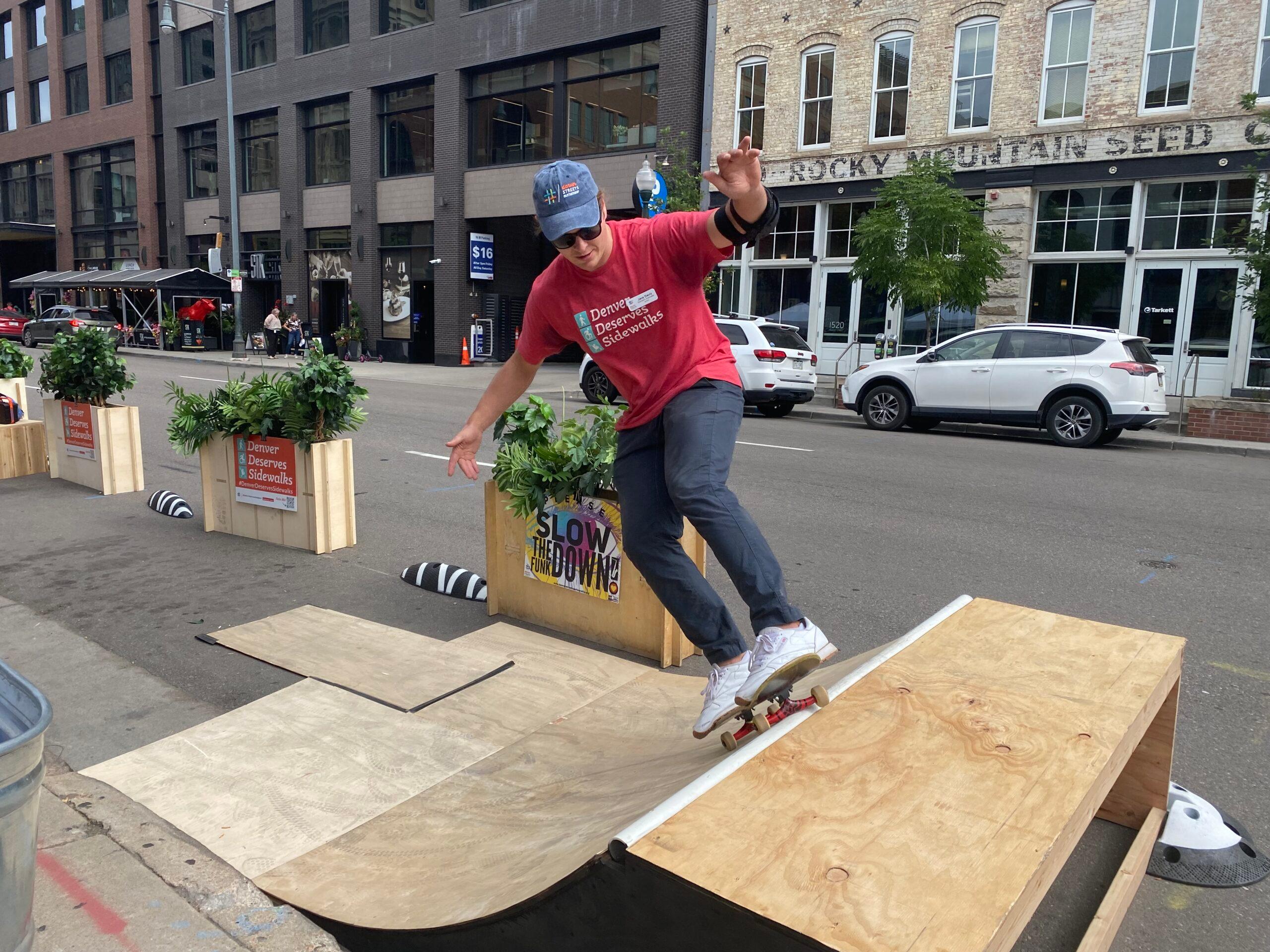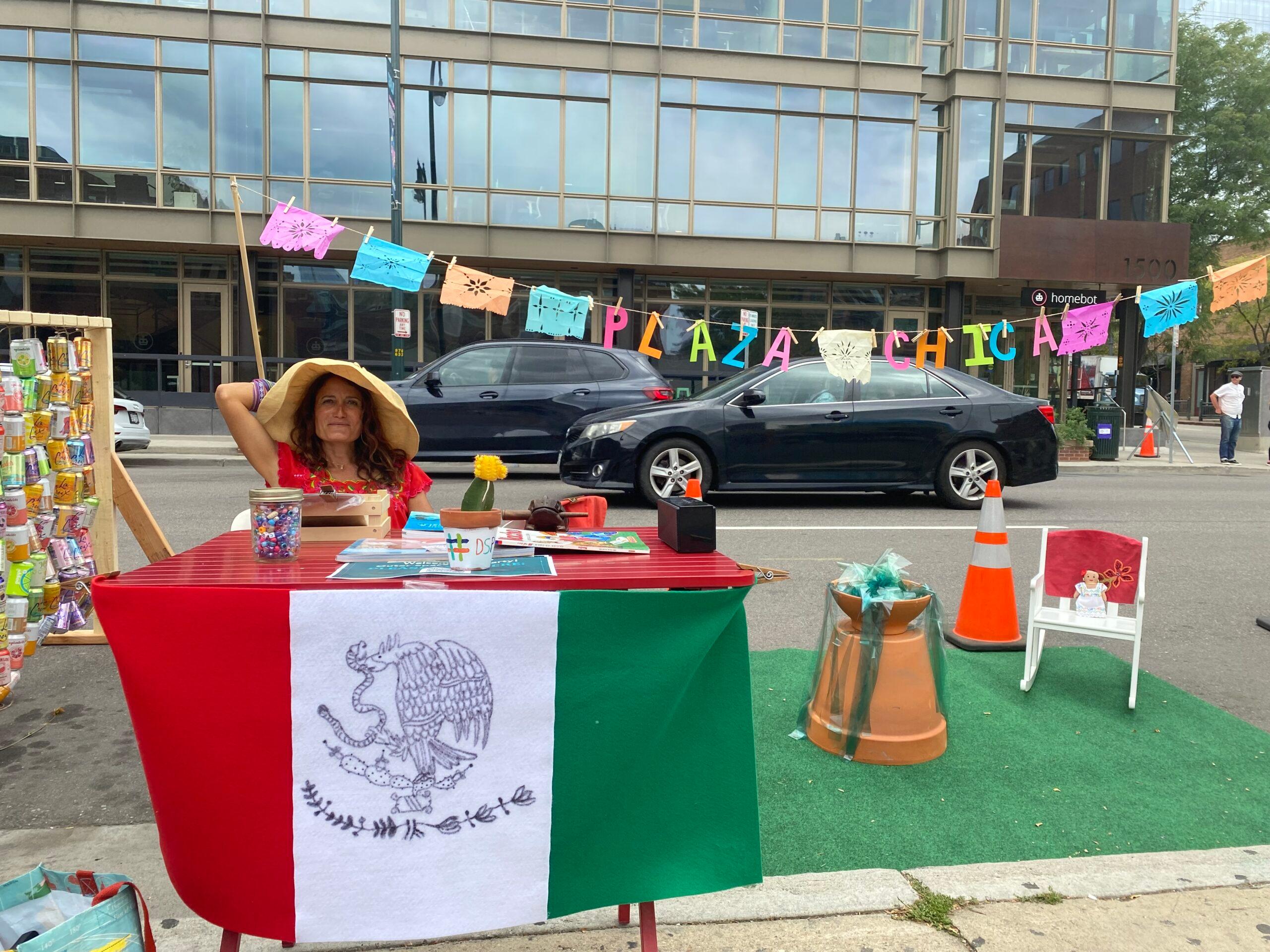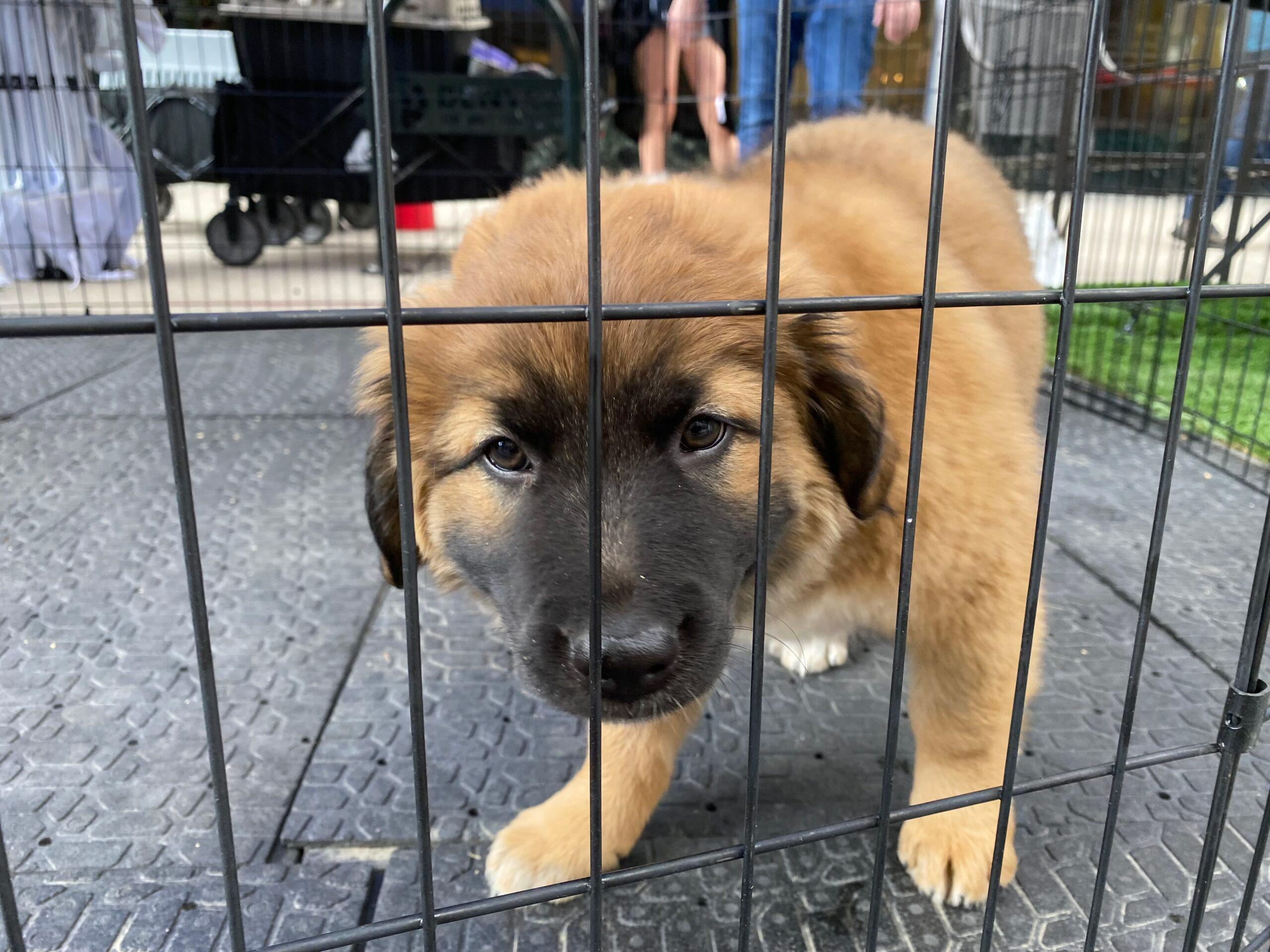A downtown parking spot on Glenarm Place was overrun by puppies on Friday. Another spot by Market Street held a mini-skate park, and yet another featured a mother-daughter duo educating passers-by about Yucatán, Mexico, complete with free paletas.
The spots were part of Park(ing) Day, a national movement started in San Francisco in 2005 in an effort to reclaim street-parking for one day a year, and rethink the use of that real-estate more broadly. Denver first participated in 2019, and brought the event back this year after taking a pause during the start of the pandemic.
"We invited community members to get creative and demonstrate what they'd like to see that space used for," said Jill Locantore, Executive Director of Denver Streets Partnership, which co-sponsored the event with the Department of Transportation and Infrastructure and Downtown Denver Partnership.

"Parklets," or sidewalk extensions into the streets, became all the rage during the pandemic. Cities, including Denver, allowed restaurants to expand into parking spots for outdoor dining. Now, many transit advocates want to see more parklets made permanent. Locantore pointed to efforts to not only make outdoor dining permanent, but also let other businesses apply to use parklets in place of parking spots in unique ways.
One landscape architecture firm made a hangout spot from completely recycled materials-including lots of La Croix cans-titled "take a break," encouraging people working downtown to pause during the workday.
"Our big mission is trying to utilize the open space, whether it's in big open areas of land not in a city, or it's small spaces between buildings," said Emily Burrowes, an urban planner for Design Workshop.

Many parklets were hosted by nonprofits and businesses, like the RTD, Lyft and urban planning groups. But one mom chose to make one on her own with her daughter.
"Where I grew up in Mérida, in the Yucatán, in Mexico, they have the Plaza Grande, which is the big plaza, and we thought, 'Oh, let's do a Plaza Chica, a small plaza,'" said Alejandra Castañeda.
Mirroring the Plaza Grande, Castañeda and her 11-year-old daughter made sillas de los enamorados, or lovers chairs, which are connected at the armrest to face each other. They brought books about the Mérida, wore clothes from the Yucatán and gave out free paletas.
"Sometimes people are familiar with Cancún, and the more touristy areas, but not necessarily the bigger cities like Mérida," Castañeda said.
As a mother, Castañeda wants to see streets be more pedestrian-friendly. She worries about car crashes and pollution affecting kids.
"They don't have the independence that they could have, if we didn't have as many cars or prioritized other forms of mobility, like buses and trains and other things," she said.
Castañeda thinks the city can do more to make Denver more pedestrian-friendly and child-safe.
"I think a lot of our leaders, political leaders and appointed leaders in the Department of Transportation, are having a hard time sort of standing up to the status quo of everything being built around cars," she said. "Something needs to happen quickly, more urgently, and more quantities of funds need to be reallocated... It feels like we lack courage."













